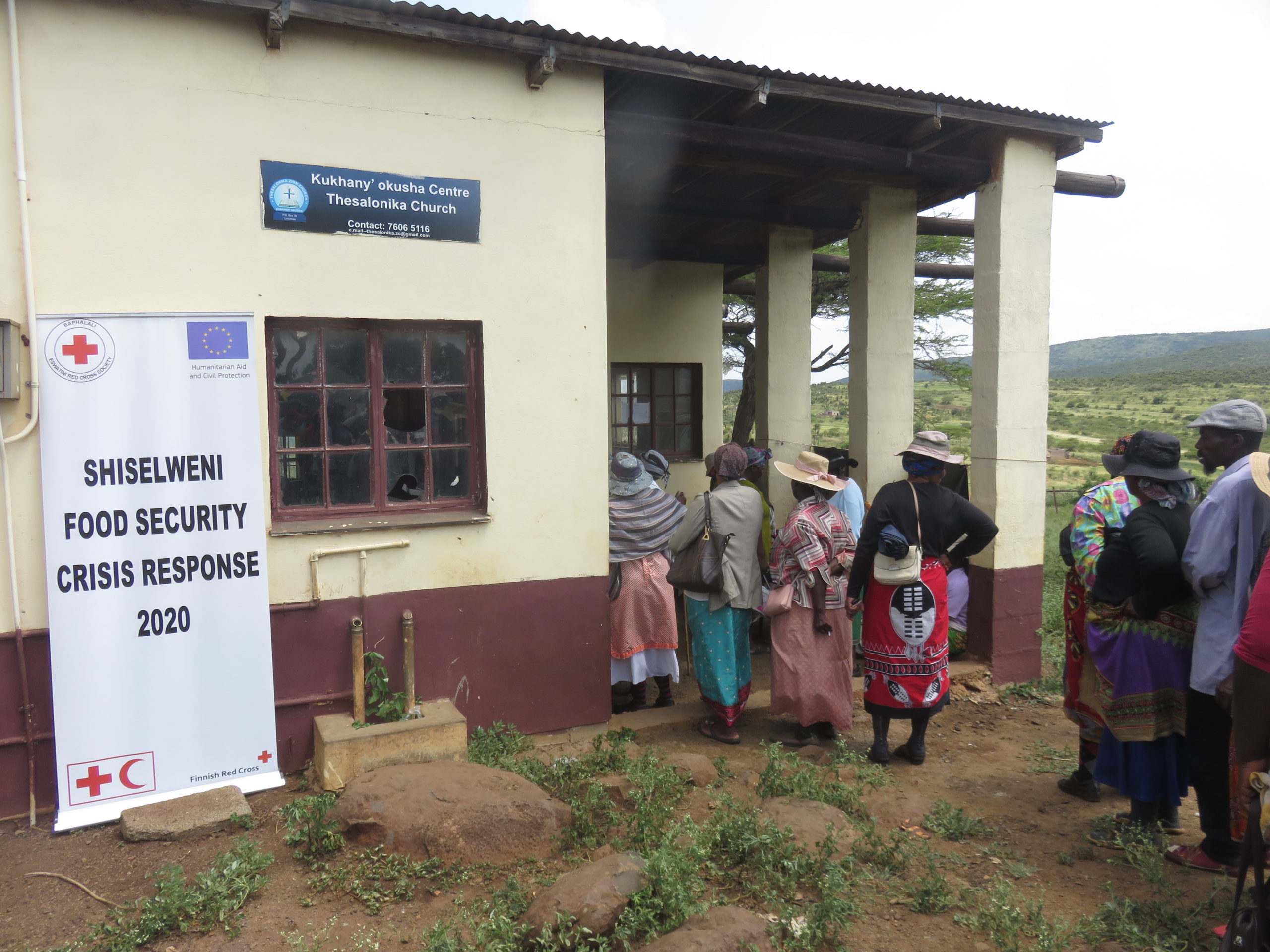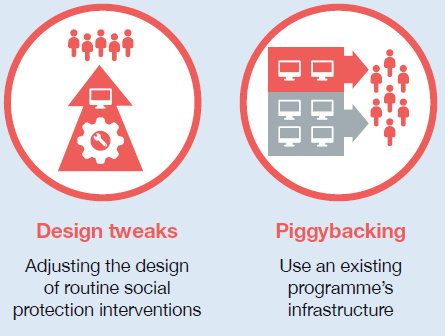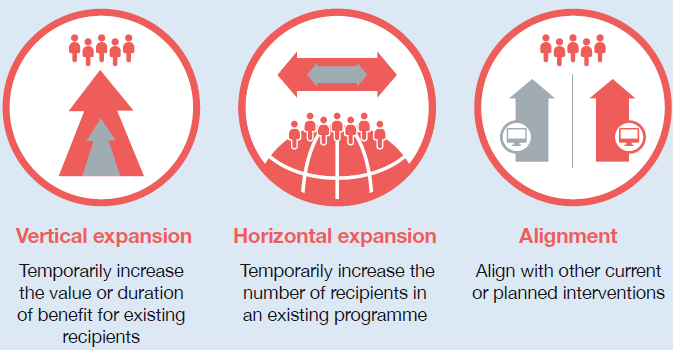April 26, 2021
Linking cash and voucher assistance with humanitarian response and social protection systems: the experience of the Baphalali Eswatini Red Cross Society
The Baphalali Eswatini Red Cross Society (BERCS) and British Red Cross have published a new case study outlining how BERCS used their experience in cash and voucher assistance (CVA) to influence the Government of Eswatini to adopt mobile cash as the response modality for their humanitarian response and social protection programmes, since the COVID-19 response.
BERCS began advocating about the benefits of CVA in 2016 when they became the first actor in Eswatini to implement cash assistance. The advocacy work was essential to gain the government support needed to pilot a multipurpose cash programme, and throughout the programme transparent communication between BERCS and the government convinced many of the benefits and efficiencies of using CVA. This set a precedent and opened the path for other actors to implement CVA in Eswatini.
When the COVID-19 pandemic hit Eswatini in March 2020, the Government could not distribute goods in kind in the traditional way. Drawing on the advocacy and experience of BERCS and other actors, the Government implemented the first government funded response using mobile cash.

BERCS was actively consulted and used its experience to inform the response plan. The response was a success, covering 25% of the population with 91% of recipients confirming they were happy with the support.In line with this success, the Government of Eswatini also switched the modality of existing social assistance programmes from cash in envelopes to mobile money. This is known as a ‘tweak’ to the social protection system. This is a practical example of how BERCS’ advocacy efforts resulted in a more efficient and streamlined delivery mechanism for social assistance.


BERCS continues to work closely with the government and there are opportunities to further strengthen the links between humanitarian response and social assistance. Globally, National Societies are well-positioned to use their auxiliary role and expertise to advocate for wider use of CVA as one step to strengthen social protection systems, which can be adapted in different ways to better support those in need.
For more information about the experience in Eswatini and the unique role that National Societies can play to improve social protection mechanisms, download the full case study here.
The Cash and Social Protection page also offers access to many different resources explaining what social protection is and how National Societies can engage in this area.
